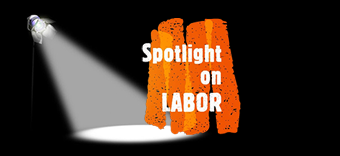AUTO WORKRS STRIKE SIGNALS A NEW CHAPTER IN UNION MILITANCY
The biggest news on the labor front this month is the strike by the United Auto Workers against selective plants of the Big Three auto makers. What makes it particularly ground-breaking is that, it signals the reawakening of the UAW, a union born in the militancy of the 1936-37sit-down strike against GM in Flint, Michigan.
The new president of UAW, Sean Fain was elected by a vote of the entire membership after years of a leadership that gave away many hard won gains of previous contracts. He has vowed to make up for the givebacks that has seen record billion dollar annual profits for the automakers while auto workers’ wages and conditions have stagnated. From being among the best paid manufacturing jobs 40 years ago they are now at the point where they have to work 60 hours or more a week just to keep their families afloat. At the same time, the compensation packages for the CEO’s of the Big Three are each over $20 million annually.
Fain has framed the strike as part of a larger struggle of working people against the greed of the corporation. The union is demanding, among other things, a 40 percent wage hike to compensate for the losses it has suffered in real wages in the past decade, a reduction in the work week to 32 hours at full 40-hour pay to share in the benefits of technology, an end to the two-tier wage system that has kept newer workers forever on a lower wage scale, and improvements in the pension system.
It is also demanding that workers at joint-venture battery shops that produce parts for electric vehicles be included in the union contract so that the conversion to electric vehicles do not result in lower standards for workers who produce those vehicles. This demand took a big step forward Oct. 6 when General Motors agreed to the UAW’s demand that workers at GM’s joint-venture EV battery factories will be covered under the automaker’s master contract with the union. It represents a historic breakthrough for American workers as they face transitions to a post–fossil fuel economy.
And in a sign of growing union solidarity, other unions have joined in support of the UAW, with their members joining the picket lines. In a mid-October development, Sean O’Brien, president of the Teamsters Union announced that teamsters will not cross UAW picket lines. Teamsters in the carhaul industry have declared that they will not deliver cars made by the Big Three until they settle with the union.


